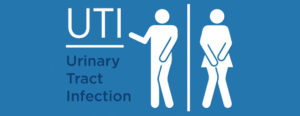Urinary tract infections are among the most common infections in the human body. Your urinary tract consists of the ureters, the bladder and the urethra. Your kidneys filter waste products from your blood and make urine out of them. A ureter leads to your bladder from every kidney. The urine is temporarily stored in the bladder until you go to the toilet. The bladder opens into the urethra (urethra), which expels the urine.

The urinary tract is covered on the inside with a layer of mucous membrane. If you have a urinary tract infection, this layer is inflamed. An infection of the lower urinary tract is called a bladder infection . An infection of the upper urinary tract, an ascending infection that is often the result of a bladder infection, can lead to kidney pelvic inflammation . Kidney pelvic inflammation is more severe than bladder inflammation and can cause kidney damage.
Cause Of A Urinary Tract Infection
A urinary tract infection is caused by bacteria, viruses and other pathogens. The biggest culprit is the gut bacterium Escheria Coli.
Cystitis
An inflammation of the bladder is also called cystitis. Often the urethra is also inflamed at the same time (urethritis). A bladder infection is almost always caused by the penetration of bacteria into the bladder. With reduced resistance, bacteria can penetrate more easily. Sometimes this is caused by washing the pubic area with soap. This changes the acidity of the sexual organs, making bacteria easier to live. Some abnormalities in the lower urinary tract can also cause bladder inflammation. Due to these deviations, not all urine can be expelled. This keeps a residue of urine in the bladder in which bacteria can multiply.
Also, uterine prolapse , and enlargement of the prostate can cause blaasontlediging insufficient, thus increasing an increased risk of bladder infection. Diabetic patients also have an increased risk of cystitis. The sugar in their urine is a good breeding ground for bacteria.
Women are more likely to have bladder infections than men because they have a shorter urethra. In addition, the urethra is closer to the vagina and the anus. Women also have a urinary tract infection more often during pregnancy and after the menopause. Sometimes women get cystitis through sexual intercourse. Also bad toilet hygiene, sweeping from the back to the front instead of from the front to the back, certainly plays a role for women. Being cold or standing on the draft has, as far as is known, no influence on the development of a bladder infection.
Kidney infection
When an infection rises from the lower to the higher urinary tract, a renal pelvic inflammation (pyelonephritis) may develop. This is often caused by improperly treated bladder inflammation. In addition, it can be caused by (congenital) blockages in the urinary tract. Blockages can be caused by a swelling, kidney stones or an enlarged prostate . Congenital abnormalities , such as backflow of the urine ( reflux ), may increase the risk of renal pelvic inflammation.
